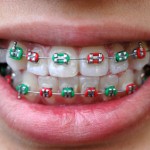
There is an increasing focus on ‘patient-centered care’ within health care. This has resulted in a greater research focus on investigating the impact of psychosocial factors in clinical care. Orthodontic treatment is usually undertaken in adolescents with studies suggesting that treatment is undertaken to improve facial or dental appearance, dental health and oral function.
The aim of this systematic review is to assess the role of patients’ expectations from orthodontic treatment.
Methods
Searches were conducted in the Pubmed, Cochrane, Web of Science and PsychINFO databases. Experimental studies (randomized or not, prospective, retrospective and cross sectional) with qualitative and/or quantitative analysis with the patients’ expectation or orthodontic treatment as topic published in English was considered.
Two reviewers independently screened the studies, with a single reviewer extracting data. Study quality was assessed by two reviewers using the Strengthening the Reporting of Observational Studies in Epidemiology (STROBE) criteria. Due to heterogeneity of the study designs a narrative summary was presented.
Results
- 13 studies (1 RCT, 1 cohort study, two questionnaire-developments, and 10 cross-sectional studies) published in 14 papers were included.
- All 13 were quantitative studies using questionnaires to measure interest parameters
- Two broad areas were summarised
- Expectations with regards to the treatment process experience and impact on quality of life ( 7 studies)
- Expectations with regards to the treatment outcome and benefits (6 studies)
Conclusions
The authors concluded
For patients, dental appearance and function improvement are most expected when the orthodontic treatments complete. However, current research is poor in the quality of methodology and results analyses even the standardised questionnaires are adopted. This weakens the evidence of sub-determiners influencing patient expectations. The role of expectations on the orthodontic treatment or relevant treatment factors like patient satisfaction is not investigated at present. Future studies are needed and well-constructed theory is recommended.
Comment
As the authors note the literature search although a number of databases were searched the restriction to studies published in English may have had an impact on the findings. Overall the authors considered that quality of the available evidence was poor and they made a number of relevant recommendations that future research should:-
- Construct the theoretical model of how patients form expectations from orthodontic treatment and demonstrate its determinants and contributing factors both theoretically and experimentally. Stratified or multivariate analysis is recommended.
- Investigate the nature, extent and clinical implications of the relation between expectations and subsequent treatment outcomes, including evaluations of intervention effectiveness.
- Investigate the changes or different roles of expectations at different clinical
With significant levels of orthodontic treatment being provided clearer understanding of patients expectation may improve treatment outcomes and patents satisfaction with orthodontic treatment.
Links
Primary Paper
Yao J, Li DD, Yang YQ, McGrath CP, Mattheos N. What are patients’ expectations of orthodontic treatment: a systematic review. BMC Oral Health. 2016 Feb 17;16(1):19. doi: 10.1186/s12903-016-0182-3. PubMed PMID: 26884053; PubMed Central PMCID: PMC4756524.
Other references
Dental Elf – 13th Jan 2016 – Impact of malocclusion on oral health related quality of life is small

Patient expectations of orthodontic treatment – research currently of poor quality https://t.co/xbcpyhVmXg
Only limited quality research currently available into patient expectations of orthodontic treatment https://t.co/hDe8sK2UsS
Currently available research into patient expectations of orthodontic treatment is of limited quality https://t.co/xbcpyhVmXg
Research into patient expectations of orthodontic treatment is of limited quality https://t.co/xbcpyhVmXg
Don’t miss- Patient expectations of orthodontic treatment – research currently of poor quality https://t.co/xbcpyhVmXg